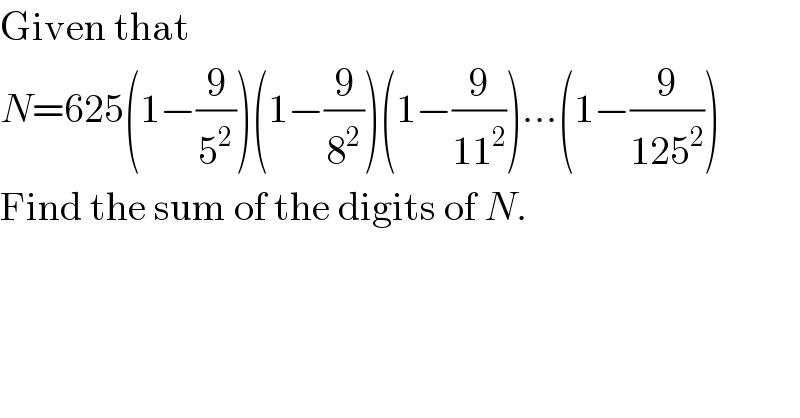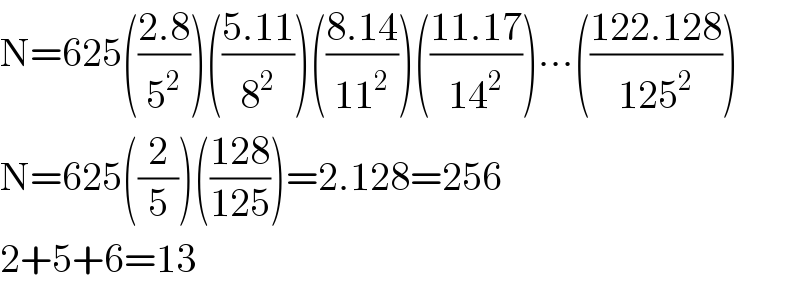
Question and Answers Forum
Question Number 114570 by ZiYangLee last updated on 19/Sep/20

Answered by floor(10²Eta[1]) last updated on 19/Sep/20

Answered by Olaf last updated on 19/Sep/20

| ||
Question and Answers Forum | ||
Question Number 114570 by ZiYangLee last updated on 19/Sep/20 | ||
 | ||
Answered by floor(10²Eta[1]) last updated on 19/Sep/20 | ||
 | ||
| ||
Answered by Olaf last updated on 19/Sep/20 | ||
 | ||
| ||